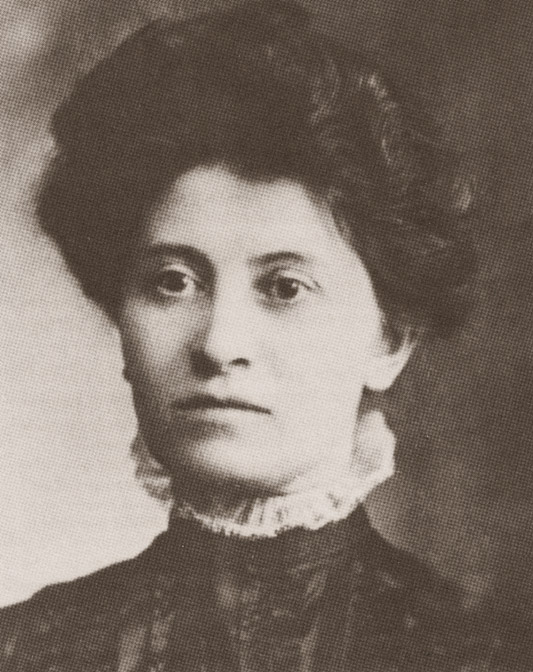|
National Women's Day (other)
{{disambiguation ...
* National Woman's Day U.S.A. * National Women's Day South Africa * National Women's Day (Tunisia) * National Women's Day (Pakistan) * National women's day (India) See also * International Women's Day International Women's Day (IWD) is a global holiday celebrated annually on March 8 as a focal point in the women's rights movement, bringing attention to issues such as gender equality, reproductive rights, and violence and abuse against wom ... [...More Info...] [...Related Items...] OR: [Wikipedia] [Google] [Baidu] |
National Woman's Day
Woman's Day, also known as National Woman's Day (a retronym in regard to the later international observance), was a commemoration conceived by labor activist Theresa Malkiel, and organized principally in New York City by the Socialist Party of America on the last Sunday in February in 1909 and 1910. It was the immediate predecessor to International Women's Day which began to develop globally in 1911, although it was still observed in the United States in February rather than in March for several years. Background There is an account of Woman's Day being inspired by an 1857 garment strike in New York City, but this appears to be a fabrication from a French ideological dispute. Neither was it based on a particular strike in 1908, as is sometimes stated. Some American women socialists disagreed with a resolution at the 1907 International Socialist Women's Conference that discouraged cooperation with non-socialist suffrage activists, and subsequently in 1908 the Woman's National Co ... [...More Info...] [...Related Items...] OR: [Wikipedia] [Google] [Baidu] |
National Women's Day
National Women's Day is a South African public holiday celebrated annually on 9 August. The day commemorates the 1956 march of approximately 20,000 women to the Union Buildings in Pretoria to petition against the country's pass laws that required South Africans defined as "black" under The Population Registration Act to carry an internal passport, known as a passbook, that served to maintain population segregation, control urbanisation, and manage migrant labour during the apartheid era. The first National Women's Day was celebrated on 9 August 1995. In 2006, a reenactment of the march was staged for its 50th anniversary, with many of the 1956 march veterans. 1956 Women's March On 9 August 1956, more than 20,000 South African women of all races staged a march on the Union Buildings in protest against the proposed amendments to the Urban Areas Act of 1950, commonly referred to as the "pass laws". The march was led by Lillian Ngoyi, Helen Joseph, Rahima Moosa and Sophia Willi ... [...More Info...] [...Related Items...] OR: [Wikipedia] [Google] [Baidu] |
National Women's Day (Tunisia)
National Women's Day ( ar, عيد المرأة) is celebrated in Tunisia every year on August 13. It commemorates the day of adoption of the Code of Personal Status in Tunisia, the 13th of August in 1956, the year of independence in Tunisia. The code enacted laws for the family that contain fundamental changes, the most important of which is the prohibition of polygamy, the withdrawal of guardianship from men and the making of divorce by the court instead of men. In 2017, President Beji Caid Essebsi announced on National Women's Day that he intended to remove gender bias from Tunisian inheritance law, sparking much controversy both from leftist groups who saw it as a political move and conservative groups that saw it as contrary to Sharia law Sharia (; ar, شريعة, sharīʿa ) is a body of religious law that forms a part of the Islamic tradition. It is derived from the Five Pillars of Islam, religious precepts of Islam and is based on the Islamic holy books, sacred s ... [...More Info...] [...Related Items...] OR: [Wikipedia] [Google] [Baidu] |
National Women's Day (Pakistan)
National Women's Day in Pakistan is 12 February of each year, chosen to mark the first women's march in Pakistan against the Zia ul Haq's military regime. The date 12 February 1983 is significant in the history of women's rights in Pakistan because the first such march was brutally suppressed by the martial law enforced by the police of General Zia ul Haq's regime. The Day is over three weeks before International Women's Day when the Aurat Marches take place in Pakistan. Annual commemorations Pakistan's National Women's Day is held annually on 12 February to mark the first women's march in the country held on that date in 1983. December 22 is also celebrated as a National Day for Pakistani Working Women. These two days, in addition to International Women's Day, were acknowledged for celebration by Pakistan's government from the time of Yousaf Raza Gillani the former Prime Minister. 2012 Among those honoured in 2012 were Shahnaz Wazir Ali ( PPP's adviser to the PM), Nilofar ... [...More Info...] [...Related Items...] OR: [Wikipedia] [Google] [Baidu] |
National Women's Day (India)
National women's day in India is celebrated on 13 February every year, on the birthday of Sarojini Naidu she was born on 13 February 1879 in Hyderabad, India. Naidu was an active Indian independence movement leader and known for her literary works, particularly for her poems with the themes like patriotism, romanticism and lyric for which she is called "Nightingale of India"—(''Bharat Kokila'') by Mahatma Gandhi Mohandas Karamchand Gandhi (; ; 2 October 1869 – 30 January 1948), popularly known as Mahatma Gandhi, was an Indian lawyer, anti-colonial nationalist Quote: "... marks Gandhi as a hybrid cosmopolitan figure who transformed ... anti- ..., Naidu had always stood for the empowerment of women in India. References Sarojini Naidu February observances Women's rights in India {{observance-stub ... [...More Info...] [...Related Items...] OR: [Wikipedia] [Google] [Baidu] |
